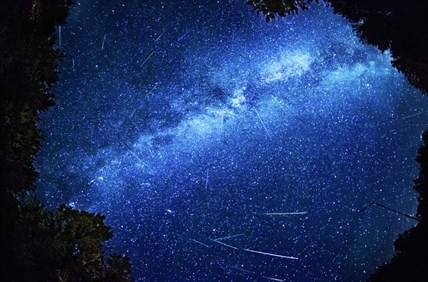
Image Credit: istockphoto.com
August 01, 2014 - 10:27 AM
THOMPSON-OKANAGAN - Mother nature will be mooning this year’s Perseid meteor shower casting enough light to wash out faint meteors, but there’s a way around this rude interruption in order to make the best of the situation.
Don’t wait until the August 11-13 peak. Get out there now. The Delta Aquariids reached their peak in the wee hours of July 30 but the good news is the fade out is gradual and overlaps the current build up of the Perseid meteor shower offering enthusiasts plenty to see.
The light of the moon won’t be typical during this year’s Perseids either. On August 10 there’ll be a supermoon, the second brightest of three in a row. Supermoons happen when the moon’s orbit is at its closest point to earth. It appears larger in the sky and a greater amount of light deflected from its surface makes it to earth.
It’ll be so spectacular, NASA Science News is calling it an extra-super moon.
But that’s the future. What’s happening right now is the moon is setting Friday and Saturday night at about midnight, making way for a very dark canvass for the streaks of light to shimmer across.
What makes the Perseids special isn’t the rate they enter the upper atmosphere — typically estimated at about 120 per hour during the peak — they’re known for taking their time moving across the sky and producing long tails. They’re also known for some spectacular fireballs. Weather and mosquitoes permitting and with kids on summer break, it’s a great time of the year to enjoy nature’s spectacles.
NASA has been watching events and say this year’s show, even in the early stages could be as super as the coming moon. The Space Administration has 12 cameras aimed at the sky to detect and count fireballs and so far they’re seeing enhanced activity.
The best chance of seeing the meteor shower is away from city lights in the last couple hours before dawn. The Aquariids originate in the southern sky while the Perseids should appear in the north-northeastern sky, close to the constellation Perseus.
To contact a reporter for this story, email sjordan@infotelnews.ca or call 250-491-0331. To contact the editor, email mjones@infotelnews.ca or call 250-718-2724.
News from © iNFOnews, 2014